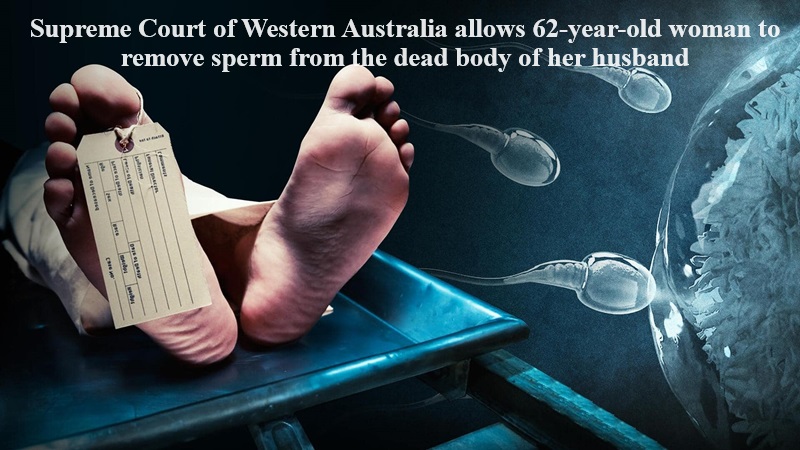
The Supreme Court of Western Australia has granted permission to a 62-year-old woman to extract sperm from her deceased 61-year-old husband for potential posthumous fertilization. The woman urgently filed a court application after her husband’s death last year. The deceased’s body was at Sir Charles Gairdner Hospital, and the court was informed that the woman sought an order because the hospital failed to promptly provide a “designated officer” to address her request to extract and store her husband’s sperm while it remained viable.
The court learned that the couple, whose identities were withheld for legal reasons, had tragically lost both of their children in separate accidents. Following the deaths of their children, the couple had contemplated having another child. However, the woman, due to her age, was advised by a fertility expert that she could not conceive. Subsequent testing revealed that her husband’s sperm remained viable.
A 20-year-old cousin had volunteered to undergo in vitro fertilization (IVF) and serve as a surrogate for the couple. However, logistical challenges arose as the couple lived abroad, and the woman believed there was a legal requirement to reside in the country for a specific duration before pursuing surrogacy. The pandemic, work commitments, and the death of the woman’s mother-in-law further complicated their plans to relocate.
In rendering the verdict, Judge Fiona Seaward granted permission for the sperm extraction but stipulated that its use would necessitate a separate court order. The judge clarified that the granted orders only permitted the removal of the sperm and did not authorize its use, nor did they address whether the woman could meet any statutory criteria for such usage. The court’s decision reflects a delicate balance between the woman’s reproductive wishes and the legal complexities surrounding posthumous reproductive technologies.

Post Your Comments